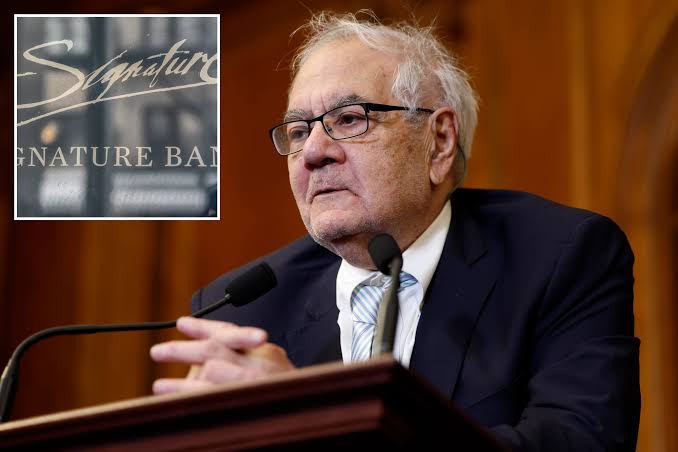
Barney Frank Blames Public for Signature Bank’s Collapse
In the aftermath of the bank’s failure, former members of the United States House of Representatives and Signature Bank board member Barney Frank pointed the finger at certain members of the public.
Frank stated in a May 30 hearing before the New York State Senate that he had “no apologies” for the failure of Signature and that the bank’s crypto transactions were “safe and sound” before the intervention of regulators.
Some public members failed to recognize that the bank acted as a facilitator for crypto rather than investing directly in digital assets, according to the former lawmaker.
Frank remarked on the demise of Signature, “It wasn’t the digital business professionals who panicked; it was those who didn’t understand the business but were afraid of it.”
“Unfortunately, many uninsured depositors were hostile to cryptocurrencies and incorrectly associated us with Silicon Valley.”
Signature Bank was taken over by the New York Department of Financial Services in March, despite the contentions of many, including Frank, that the bank was not insolvent at the time.
Following the failures of Silicon Valley Bank and Silvergate Bank, both connected to crypto firms, the bank failed.
Frank added:
“On the day we were shut down — I believe prematurely — our assets were fine, our capital was fine, our loan portfolio was fine. The only problem we had was crypto-fear inaccurate withdrawals.”
The New York Senate hearing was one of the first state-level investigations into the collapse of the cryptocurrency-friendly bank.
In March, federal lawmakers met to discuss the events that led to the failures of Silicon Valley Bank and Signature Bank.
Before the United States primaries and general elections of 2024, digital assets may emerge as a policy position.
Due to the availability of capital and the influx of businesses, New York’s financial regulators are frequently at the forefront of industry-defining policies.
Former FTX CEO Sam Bankman-Fried will face his criminal trial in New York beginning in October.
Since implementing its BitLicense regime in 2015, the state’s Department of Financial Services has been conducting investigations and enforcement actions against multiple crypto firms.
